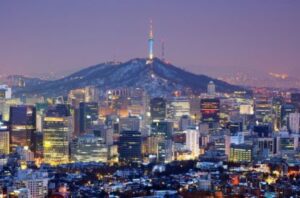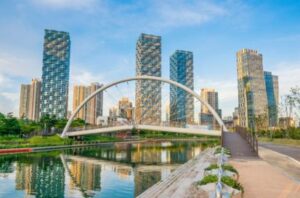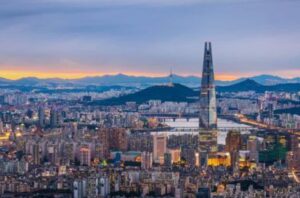SOUTH KOREA
Overview of the South Korea
South Korea is located in East Asia on the southern half of the Korean Peninsula, bordered by North Korea to the north and surrounded by the Yellow Sea, the East China Sea, and the Sea of Japan. The country experiences a temperate climate with four distinct seasons, including cold winters and hot, humid summers. South Korea is renowned for its rich cultural heritage, blending traditional customs with modernity. It has a robust healthcare system and a well-developed transportation network, including high-speed trains and extensive public transit.
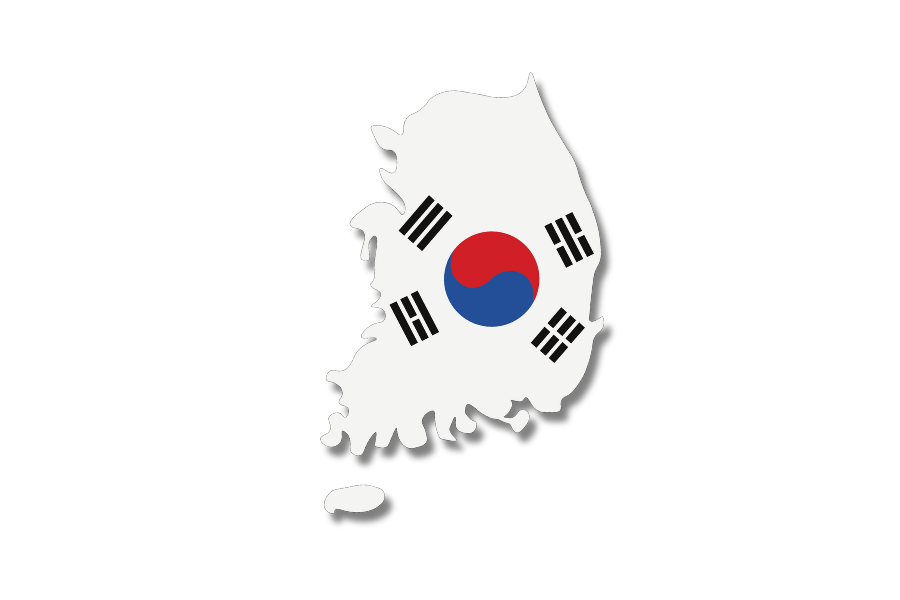
South Korea boasts advanced infrastructure with cutting-edge technology and well-maintained facilities. It ranks highly on global indices for innovation and economic competitiveness. The country is generally safe for immigrants, with a growing focus on multiculturalism and inclusion. Opportunities abound, particularly in technology, education, and business sectors, making it an attractive destination for skilled professionals and entrepreneurs.
Percentage Distribution of Non-Immigrant Student Visa Holders in South Korea (2014-2023)
Percentage Distribution of Non-Immigrant Visa Holders in South Korea (2014-2023)
VISAS
Climate and Seasons

SPRING
March to May
Minimum: 5°C
Maximum: 20°C

SUMMER
June to August
Minimum: 20°C
Maximum: 30°C

AUTUMN
September to November
Minimum: 10°C
Maximum: 25°C

WINTER
December to February
Minimum: -10°C
Maximum: 10°C
WHY STUDY IN SOUTH KOREA?
Studying in South Korea offers a unique blend of high-quality education and cultural richness. Renowned for its advanced technology and innovation, South Korea’s universities provide cutting-edge programs, particularly in fields like engineering, computer science, and business. The country boasts a vibrant, modern culture while preserving its deep-rooted traditions, providing students with a diverse and immersive experience. Additionally, South Korea is known for its safety, affordable living costs, and excellent public transportation, making it a convenient choice for international students. The Korean government also offers various scholarships and support programs to help ease financial burdens. With its dynamic student life and numerous opportunities for personal and professional growth, studying in South Korea not only enhances academic knowledge but also enriches one’s global perspective.
COURSES
Computer Science
Business Analytics
MBA
Mechanical Engineering
Major Courses Opted by Students (2014-2023)

Test Preparation at PVR Global Educational Services
PVR Global Educational Services offers tailored training for GRE, IELTS, PTE, SAT, GMAT, and Duolingo tests. Expert instructors provide personalized study plans, practice materials, and mock exams to boost proficiency in reading, writing, listening, speaking, and quantitative skills. Flexible scheduling and comprehensive support help students achieve high scores and succeed in their academic and professional endeavors.
Quick Facts about South Korea
South Korea is home to globally recognized institutions like Seoul National University and KAIST, offering cutting-edge academic programs.
Known for excellence in technology, engineering, and business, South Korean universities offer specialized courses and research opportunities.
Experience a unique blend of modernity and tradition, with rich cultural heritage, vibrant city life, and historic sites.
Various scholarships and financial aid options are available for international students, easing the financial burden of studying abroad.
South Korea offers a relatively low cost of living compared to other developed countries, with affordable housing and daily expenses.
The country is known for its safety and low crime rates, providing a secure environment for students.
South Korea has an efficient and extensive public transportation system, including high-speed trains and reliable buses.
Courses Opted by Indian Students in South Korea (2014-2023In Percentage)
Education System in South Korea
South Korea’s education system begins with six years of primary and three years of secondary education, emphasizing rigorous academics and discipline.
Grade System: Grades 1-6 (Primary), 7-9 (Middle School), 10-12 (High School)
Duration: Primary (6 years), Secondary (3 years each for middle and high school)
Average Fee: Public schools are largely free; private schools may charge $1,000-$5,000 per year.
Tertiary education in South Korea includes undergraduate, graduate, and doctoral studies, focusing on advanced knowledge and specialized skills.
Grade System: Based on a 4.0 scale, with GPA ranging from 0.0 to 4.5
Duration: Varies by program, typically 4 years for bachelor’s, 2 years for master’s, and 3-4 years for doctoral.
Average Fee: Bachelor’s ($3,000-$6,000/year), Master’s ($4,000-$8,000/year), Doctorate ($5,000-$10,000/year)
Undergraduate program providing foundational knowledge and skills in various fields, typically required for entry-level professional careers.
Grade System: High Distinction, Distinction, Credit, Pass, Fail
Duration: Typically 3-4 years
Average Fee: $30,000 per year
Graduate program offering advanced and specialized knowledge in a specific field, often required for professional and academic expertise.
Grade System: High Distinction, Distinction, Credit, Pass, Fail
Duration: Typically 1-2 years
Average Fee: $35,000 per year
Highest level of academic degree focused on original research and contributing new knowledge to a specific field of study.
Grade System: High Distinction, Distinction, Credit, Pass, Fail
Duration: Typically 3-4 years
Average Fee: $40,000 per year

Identifying the Right Institution
Assess university rankings in global and national surveys. High rankings often reflect strong academic programs and research capabilities.
Check if the university is accredited by relevant educational bodies. Accreditation ensures that the institution meets high educational standards.
Evaluate the qualifications and research output of faculty members. Experienced and renowned professors contribute to a university’s educational excellence.
Look for universities with robust research facilities and funding. Strong research programs offer valuable opportunities for academic and professional growth.
Examine the quality of campus facilities, including libraries, laboratories, and technology. Well-equipped facilities enhance the learning experience and support students’ needs.
Review the availability of support services like career counseling, academic advising, and health services. Comprehensive support services contribute to student success.
Investigate the strength and global reach of the university’s alumni network. A strong network can provide valuable connections and career opportunities.
No of Students placed in different sectors (2014-2023In Percentage)
Success Rate of Indian Students in the South Korea by Sector (2014-2023In Percentage)
Getting a South Korea Visa
Identify the specific visa type based on your purpose, such as student, work, or tourist visa. Each visa category has unique requirements and conditions tailored to your intended stay.
Review the South Korean embassy or consulate’s official website for detailed visa requirements. Ensure you understand the specific eligibility criteria, documents needed, and application procedures for your chosen visa type.
Collect all necessary documents, including a valid passport, visa application form, photographs, and supporting documents like financial statements, academic records, or employment letters as specified for your visa type.
Register on the South Korean visa application portal or website. Creating an account will allow you to manage your application, track its status, and receive updates throughout the process.
Fill out the visa application form accurately online, providing all required personal and travel information. Ensure all fields are correctly completed to avoid delays or rejections.
Submit the required visa application fee through the designated payment method. Fees vary depending on the visa type and processing speed, and payment confirmation is necessary for the application.
If your visa application requires biometric data, schedule an appointment and provide fingerprints and photographs as instructed. Biometrics help verify your identity and support the visa processing.
Attend a visa interview if required by the consulate or embassy. Be prepared to answer questions about your travel plans, financial status, and reasons for visiting South Korea during the interview.
After submission, wait for the visa processing time, which can vary. Check the estimated processing times and monitor your application status through the visa application portal.
Once approved, receive your visa either by mail or in-person at the consulate or embassy. Verify all details on the visa for accuracy and ensure it covers your intended stay.
Ensure your passport is valid for at least six months beyond your planned stay. Start the application process early to accommodate any potential delays and consult with the embassy for specific queries.
List of Universities


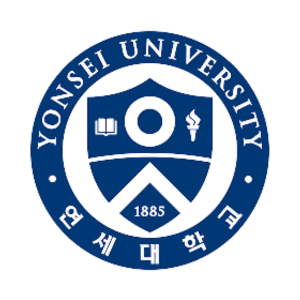
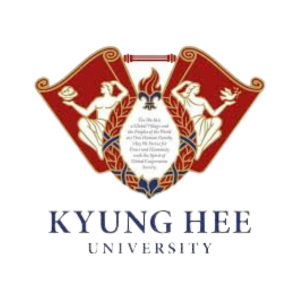
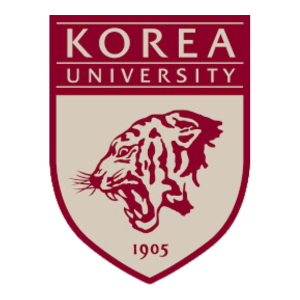
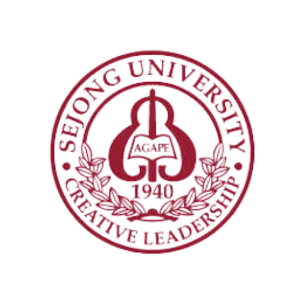

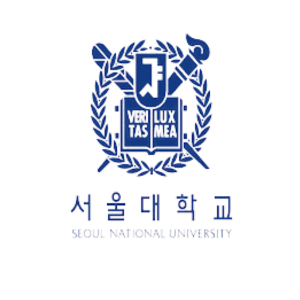
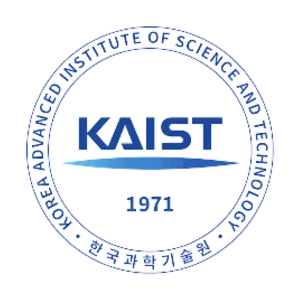
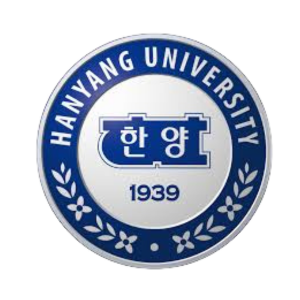
Intake details
Intake | Start Dates | Remarks |
|---|---|---|
Fall | May - June | Primary intake for most programs; peak admission period. |
Spring | October - November | Secondary intake; fewer programs available compared to Fall. |
Summer | Varies by program and university | Limited programs; typically for accelerated courses or specific programs. |
Deadlines
Deadline Type | Fall Intake | Spring Intake |
|---|---|---|
Scholarship Deadlines | May - June | October - November |
Admission Deadlines | June - July | November - December |
Best Time to Start the Process | December - January | June - July |
Last Date to Apply for Admission | July 15 - August 15 | December 15 - January 15 |
Documents required
Document Type | Requirements | Remarks |
|---|---|---|
Application Form | Completed form, usually online | Ensure all fields are accurately filled |
Passport Copy | Valid passport with at least 6 months validity | Must be clear and up-to-date |
Transcripts | Official academic transcripts from previous institutions | Transcripts must be translated if not in English or Korean |
Degree Certificate | Proof of previous degree(s) | Must be certified or notarized |
Statement of Purpose | Personal essay outlining goals and motivations | Tailor to each university’s requirements |
Letters of Recommendation | Typically 2-3 letters from academic or professional referees | Should be recent and relevant |
Proof of English Proficiency | TOEFL/IELTS scores (or Korean proficiency for Korean programs) | Minimum score requirements vary by program |
Financial Statements | Proof of ability to cover tuition and living expenses | Bank statements or affidavits required |
Health Certificate | Recent medical check-up report | Some programs may require this |
Application Fee Receipt | Proof of payment for application fee | Ensure payment is confirmed |
